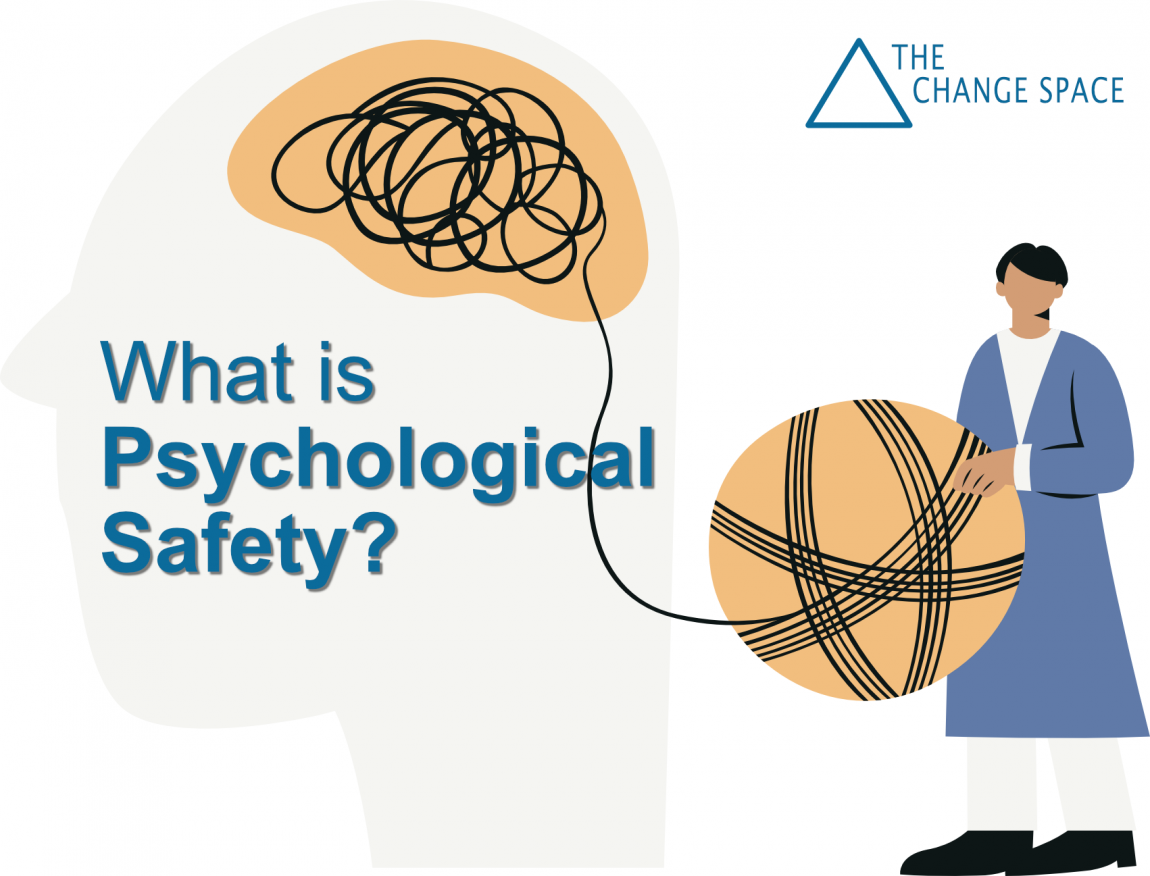
Let's discuss something crucial in our work as change practitioners - psychological safety. Now, you might be wondering why this matters so much. If change is ultimately all about the people it's impacting, ensuring they have the confidence to talk earnestly with us is a must. Creating a safe space for your team isn't just a nice to have; it's the foundation of successful change initiatives.
Why Psychological Safety Matters
Let's start by discussing why psychological safety is such a big deal. Imagine you're in a team where you can voice your ideas, share your worries, and admit your mistakes without fearing judgment. Sounds like a dream, right? This is what psychological safety is all about. It's a concept championed by Harvard Professor Amy Edmondson, and it's critical in organisations and during times of change. Here's why;
Encourages Authenticity
When people feel safe, they're more likely to be authentic. They have the confidence to voice any concerns or feelings of being left behind. Open dialogue is crucial for navigating change.
Facilitates Innovation
In a safe environment, team members aren't afraid to think outside the box. Our want to fit in (also known as social loafing) inhibits many of our more creative ideas.
Reduces Resistance to Change
Fear of the unknown can make people dig in their heels. Whilst psychological safety doesn't wipe away uncertainty, it can make others sure of us and our relationship with them.
Increases Engagement
When people feel valued and heard, they're more invested in the change process. Psychological safety boosts job satisfaction and motivates everyone to give their best.
Builds Trust
Trust is the glue that holds teams together. A safe environment fosters trust, leading to better collaboration and a more unified approach to achieving our goals during times of change.
Building Psychological Safety in Transformation Projects
So, how do we create this magical environment of psychological safety? To sum it up, we need to be vulnerable in simple ways, such as acknowledging what we don't know, deferring to others for their expertise or acknowledging the moments we've made a mistake.
However, only some organisations we work with will see vulnerability as a positive contributor to workplace culture. Here are some ways you can build psychological safety through vulnerability.
The Trust Net
Imagine you’re at a circus, watching a trapeze artist soaring through the air. Every flip, twist, and leap is breathtaking. But the real magic isn’t just in their skill but in the safety net stretched beneath them. This net doesn’t hold them back; it gives them the freedom to take risks, to push the boundaries of what’s possible, knowing they’re supported.
Now, think of your team during a period of organisational change. Psychological safety acts like that net. It catches people when they stumble, so they feel safe enough to take risks, share ideas, and even admit when something isn’t working. Without that net, the fear of falling stifles creativity and openness. But with it, teams can fly higher, knowing they won’t crash if they make a mistake.
Lead by Example
Show your team that it's okay to be vulnerable. Admit your mistakes and be open to feedback. When you model these behaviours, it encourages others to do the same.
Create Open Channels for Communication
Regular town hall meetings, anonymous feedback tools, and dedicated discussion forums can make a big difference. The key is to ensure everyone feels their voice is heard and respected.
Provide Training and Support
Equip your team with the skills they need to navigate change effectively. Workshops on communication skills, emotional intelligence, and resilience can empower everyone to handle the psychological aspects of change without managing it.
Acknowledge and Address Concerns
When team members raise concerns, acknowledge them promptly and act. Showing them their input matters reinforces a culture of trust and respect.
Celebrate Small Wins
Recognise and celebrate achievements along the way. Celebration boosts morale and reinforces that everyone's efforts are making a meaningful impact.
Foster Inclusivity
Ensure everyone feels included in the change process regardless of their role or level. Diverse perspectives can lead to more effective problem-solving and innovative solutions.
Sustaining the Change
Psychological safety might seem like a soft concept, but it can be as crucial as any artefact in our change toolkit. By prioritising this aspect, we can create environments where our teams feel safe, valued, and motivated to contribute their best.
Making psychological safety a priority will be difficult in many cases, but the benefits are clear. Not only will it help us navigate the complexities of transformation more effectively, but it will also build stronger, more resilient teams. Creating change that not only sticks but also inspires people to be involved.
So, remember psychological safety next time you embark on a change project. Embrace it, champion it, and watch your transformation efforts work.
 (0)
(0) 







